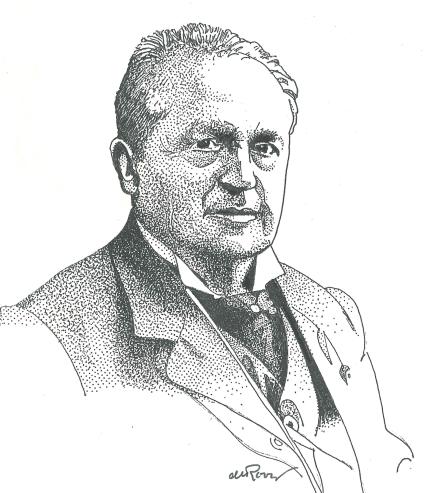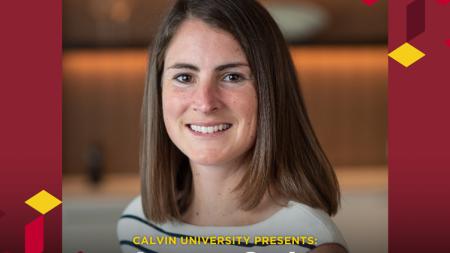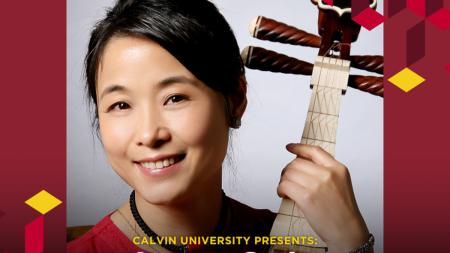CRC Scholars Play Key Role in Kuyper Translation Project

Abraham Kuyper
Acton Institute
A number of Christian Reformed Church scholars are participating in translating and editing a new series of books and digital resources titled Abraham Kuyper: Collected Works in Public Theology.
A website from the series publisher, Lexham Press, recently went live. And the first book, an English translation of Our Program: A Christian Political Manifesto, was just released.
“We are conducting this project because Kuyper is hugely important for the 21st Century,” said Melvin Flikkema, an ordained CRC pastor and a general editor of the series.
“Kuyper wrote for what is called the postmodern world. He was way ahead of his time. He did a lot of groundbreaking work in how the church should function in society.”
This series is the capstone project of the work of the Abraham Kuyper Translation Society, whose members include Kuyper College in Grand Rapids, Mich. and the Acton Institute, an ecumenical educational and research organization in Grand Rapids focused on promoting faith and freedom.
Other institutions and Abraham Kuyper scholars are also part of the project of translating Abraham Kuyper’s writings into English. The series is comprised of eight key works spread over 12 volumes.
Lexham Press is the series publisher, and, as part of the Faithlife Corporation, the series will also be made available in a variety of digital formats, including Logos Bible Software.
“The goal of this series is to provide a Reformed, biblical foundation for cultural engagement through the works of Kuyper,” said Flikkema, former provost of Kuyper College.
“A lot of Christians want to engage culture but lack the theological understanding to do so.”
Flikkema is a senior advisor at the Acton Institute. Joining him as general editor of the series is Jordan J. Ballor, an Acton Institute research fellow.
Those working on the series include John Bolt, professor of systematic theology at Calvin Theological Seminary; Matthew Tuininga, assistant professor of moral theology at Calvin Seminary, and James D. Bratt, professor of history at Calvin College.
Participants also include Nelson Kloosterman, executive director of Worldwide Resources; Harry Van Dyke, professor emeritus in history at Redeemer University College, and Jan Van Vliet, professor of economics at Dordt College.
Others contributing to the series are Peter Heslam from Oxford University, Richard Mouw, former president of Fuller Seminary, and Clifford Anderson, former curator of Princeton Theological Seminary’s Kuyper library collection.
The first volume to be made available in the series, Our Program: A Christian Political Manifesto, was translated and edited by Van Dyke. This text is a commentary and elaboration of the principles and convictions of the Anti-Revolutionary Party in the Netherlands, of which Kuyper was a key leader, says Ballor.
“Kuyper has a powerful legacy that has most often been noted explicitly within the context of the Reformed tradition, and particularly Dutch Reformed churches,” says Ballor, who holds a Ph.D. from Calvin Seminary, in an Acton Institute blog post.
“But it is my conviction that Kuyper has important lessons, many positive and some negative as well, perhaps, to teach us today and to communicate more broadly to the evangelical and even ecumenically Christian world.”
Topics to be addressed in upcoming volumes include Kuyper’s views on common grace, education, relations with Islam, and charity and justice.
Stephen Grabill, director of programs at the Acton Institute, serves as an editor of the Common Grace volumes included in the project.
In a press release, he points to the contemporary need to understand Kuyper’s comprehensive and cohesive vision for Christian social engagement.
“There are a host of current attempts to try to describe how evangelicals should be at work in the world,” said Grabill, who also holds a Ph.D. from Calvin Seminary. “Kuyper’s articulation of the project of common grace shows how these efforts must be grounded in and flow naturally from sound doctrine.”
Rimmer de Vries, a retired banking executive who lives in the Seattle, Wash. area, is funding the translation effort because he is committed "to sharing with people the public theology of Kuyper."
DeVries grew up in the Netherlands during a time when the church and society were deeply influenced by the writing and teaching of Kuyper.
"Kuyper is more than a historical figure for the church...He is an international figure whose work is an important source of how to do mission outreach and of how to improve society " said de Vries.
Kuyper lived from1837 to 1920. He was born in the Netherlands as the son of a Reformed pastor. In 1862, Kuyper was awarded the doctor of theology from Leyden University.
He edited a weekly De Heraut (The Herald), “for a free church and a free church school in a free land,” as well as a daily party organ, De Standaard (The Standard).
He was prime minister of the Netherlands and made significant contribution to the formulation and understanding of the doctrine of common grace which Kuyper called “the root conviction for all Reformed people,” according to the Acton Institute website.


